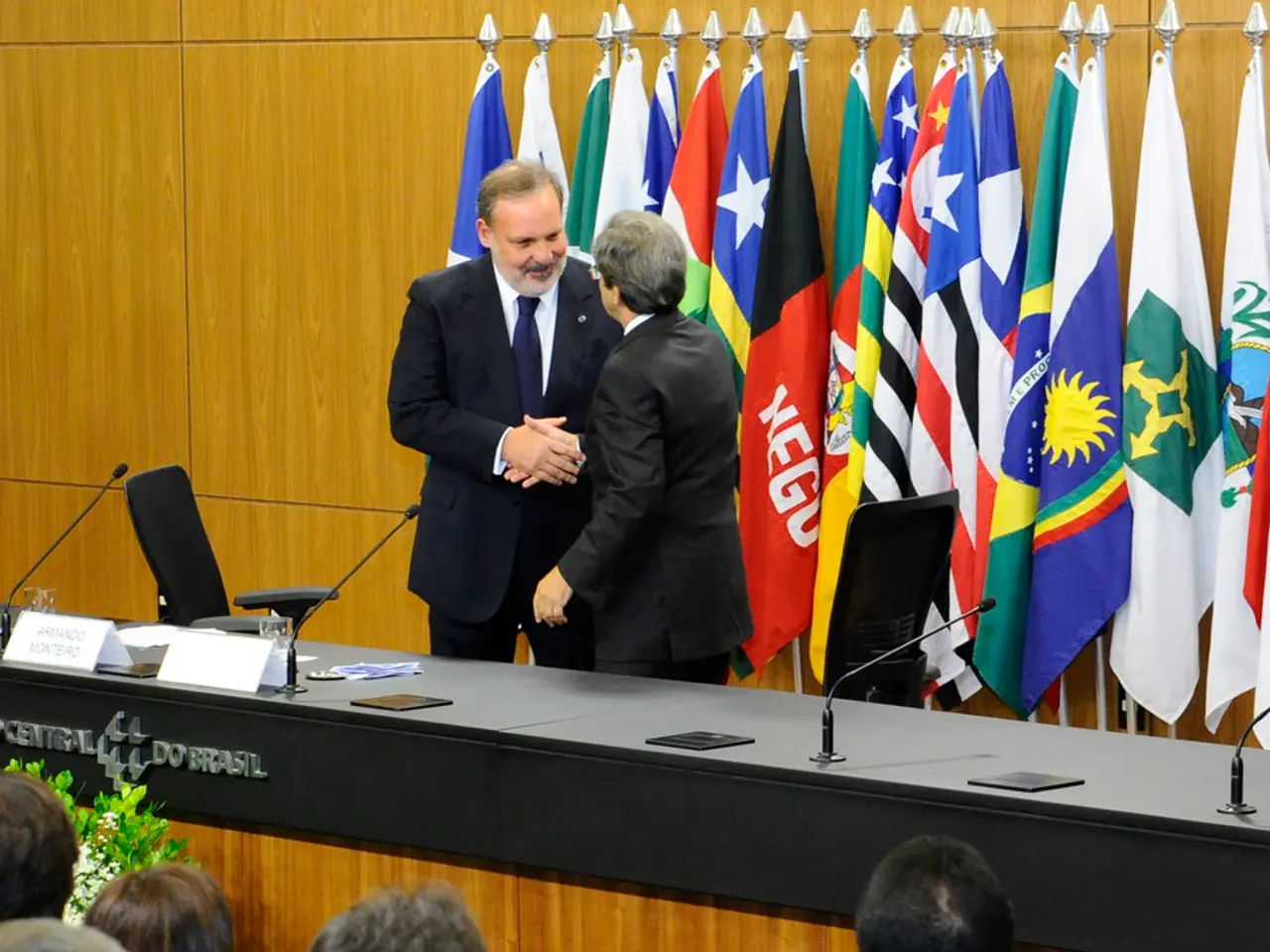Britain and Germany strengthen ties with the signing of a friendship treaty by Merz and Starmer
In a significant move to bolster bilateral relations, Chancellor Friedrich Merz and British Prime Minister Keir Starmer signed a groundbreaking Friendship Treaty in 2025, marking a significant step in post-Brexit cooperation between the two nations.
The treaty, the first of its kind between the UK and Germany, emphasises the importance of cultural exchange, particularly for the young generation, as a foundation for future collaboration. This is highlighted by the agreement's focus on a student exchange programme, aimed at fostering mutual understanding and friendship between the two nations' youth.
In terms of defence, the treaty includes plans to enhance ties, with joint production of military equipment such as Boxer armoured vehicles and Typhoon jets. This collaboration could lead to significant defence exports, strengthening both countries' defence capabilities.
Moreover, the two nations are committed to developing a precision strike missile with a range exceeding 2,000 kilometers over the next decade. This European weapons system, not currently produced in Europe, aims to achieve a balance in deterrence and defence capability with Russia's medium-range missiles.
Addressing a pressing issue, Chancellor Merz committed to making legal changes in Germany to disrupt smuggling operations, particularly those involving vessels crossing the Channel. This commitment is a response to the increasing number of migrants crossing the English Channel, with over 20,000 people already having done so this year, putting 2025 on track to be a record year for such crossings.
The Labour government of Prime Minister Starmer is under domestic pressure to reduce the number of boat migrants crossing the English Channel. To combat this, the treaty outlines plans for the fight against human trafficking, including mutual legal assistance, support in the prosecution of criminals, and effective border controls. An action plan to curb irregular migration and combat human trafficking is to be drawn up by France and the United Kingdom.
Cooperation in the fight against cross-border crime is also to be intensified, particularly in regards to money laundering, illegal financial flows, and drug trafficking. This aspect of the treaty underscores the commitment of both nations to addressing the complex challenges of the modern world together.
This friendship treaty represents a significant milestone in the relationship between Germany and the UK, signalling a new era of cooperation and mutual understanding. It is a testament to the shared values and shared goals of these two nations, and a beacon of hope for a strong and prosperous future.
During this new era of cooperation, the Labour government of Prime Minister Starmer, facing domestic pressure, is also focusing on the treaty's plans for combating human trafficking and irregular migration issues, particularly the increasing number of migrants crossing the English Channel. Moreover, the Commission, keen to further strengthen this relationship, is proposing to extend the period of validity of the agreement to a further three years, potentially involving more cooperation in various aspects, such as politics and general-news.







